 |
| Mr. Do Hoang Duong, Deputy Director of Provincial Customs Department |
Mr. Do Hoang Duong said that the customs sector has been implementing a comprehensive redesign of customs procedures and building an information technology system to meet the requirements of digital customs. In the immediate future, the sector is focusing resources on building an "information technology system to implement digital customs to meet the requirements of customs clearance". This system will replace the VNACCS/VCIS system, a breakthrough in the digital transformation of the customs sector. This is considered the second "revolution" in the modernization of the customs sector. Along with that, the sector also continues to promote the provision of online public services, integrating these services into the National Public Service Portal to create maximum convenience for people and businesses.
 |
| Customs procedures are implemented in the digital environment. |
Regarding smart customs: This is a further step of digital customs, in which digital transformation is comprehensively implemented based on the application of technologies of the 4.0 industrial revolution such as: Internet of Things (IoT), Big Data, Artificial Intelligence (AI), and Cloud Computing... in all stages of operations. The goal is to create a customs system with high automation capabilities, minimizing human intervention. At the same time, enhancing monitoring and management capabilities; focusing on building digital border gate and digital seaport platforms to optimize customs clearance processes.
That is the general orientation, but at Thua Thien Hue Customs, how is digital transformation being implemented - sir?
According to the digital transformation plan until 2025, with a vision to 2030 of the Department, from now to 2025, the Provincial Customs Department strives to successfully implement digital customs according to the roadmap of the General Department of Customs. Accordingly, the unit will focus on researching and participating with the entire industry to build and deploy customs procedures, technical solutions, and technology to deploy information technology systems to meet digital transformation requirements. Focus on disseminating, informing, and propagating to civil servants and the business community about the digital transformation work of the industry. Strengthen training and development of digital transformation human resources in terms of working skills, mastering technology and equipment in the digital environment. Support businesses in implementing digital transformation contents of customs agencies, promptly removing difficulties and obstacles that arise. Inform and coordinate with departments and branches in the area to take advantage of coordination in the process of implementing digital transformation of the customs sector...
In your opinion, what is the brightest spot in this activity?
In fact, thanks to promoting the application of information technology and digital transformation according to the industry's roadmap, the Thua Thien Hue Customs Department has soon achieved and exceeded the goals set out in the plan to reform, develop and modernize Thua Thien Hue Customs by 2020. Specifically, in the period 2010 - 2020, the Thua Thien Hue Customs Department has effectively implemented e-customs with the following highlights: e-customs procedures; e-tax payment; electronic certification of origin; e-licenses and electronic cargo manifests. Of which, the most notable is that 100% of basic customs procedures have been automated, 3/3 of the affiliated customs branches carry out e-customs procedures with over 99% of participating enterprises.
How effective is the application of information technology and digital technology to the operations that the industry is implementing?
Currently, the customs authority is operating the VNACCS/VCIS automatic goods clearance system and over 20 other satellite information technology systems, serving customs management in the fields of customs clearance, import and export tax collection, customs supervision, risk management, post-clearance inspection... Along with that, the Provincial Customs Department has also deployed the application of digital technologies in customs inspection and supervision, such as: Using goods scanners, online warehouse monitoring via camera systems, using electronic positioning seals to monitor goods in transit...
The application of information technology and digital technology to customs operations has brought about practical results, helping to improve the management and task performance of customs agencies, while at the same time, creating convenience and saving time and costs for businesses in carrying out customs procedures.
Can we understand that the development of digital data in the customs sector has created a foundation for the implementation of digital customs and smart customs, sir?
The development of digital data in the customs sector is a solid foundation for the implementation of digital customs and smart customs. The application of information technology, digital technology, and the implementation of the national single window and ASEAN single window mechanisms in handling customs procedures in recent times has helped customs agencies build a digital data platform on business information, import and export goods, import and export documents, and results of procedures that are digitized and stored on the system; sharing information among state agencies, improving transparency, and effectively serving customs management.
In the coming time, the customs sector will focus on developing digital customs data to create a foundation for implementing digital customs and smart customs, ensuring the provision of digital data for online public services, seamless data sharing between customs agencies and state management agencies, providing open data sets with high quality and exploitation value, opening data according to the provisions of law to develop the digital ecosystem and digital customs; applying Big data technology, artificial intelligence (AI) and the Internet of Things (IoT) to analyze data and forecast trends, thereby optimizing customs management and supervision processes. Information management systems will also be integrated and operated continuously 24/7, ensuring data safety and security.
Can you share more about the support and companionship with businesses in accessing and implementing customs procedures?
The Provincial Customs Department has proactively implemented many measures and solutions to support and accompany businesses, aiming at an environment of voluntary compliance with customs laws in the import-export business community in the area.
In recent times, in addition to promoting administrative reform and simplifying customs procedures, the unit has implemented many programs to support businesses, such as consulting on customs procedures, providing instructions on using electronic declaration systems and providing timely information on new regulations; regularly organizing direct dialogue conferences with businesses, establishing many information channels via electronic portals, email addresses, zalo... to receive, guide and promptly resolve difficulties and problems of the business community.
Thank you!
Source: https://baothuathienhue.vn/kinh-te/so-hoa-du-lieu-co-so-xay-dung-hai-quan-so-143616.html



![[Photo] General Secretary concludes visit to Azerbaijan, departs for visit to Russian Federation](https://vphoto.vietnam.vn/thumb/1200x675/vietnam/resource/IMAGE/2025/5/8/7a135ad280314b66917ad278ce0e26fa)
![[Photo] General Secretary To Lam begins official visit to Russia and attends the 80th Anniversary of Victory over Fascism](https://vphoto.vietnam.vn/thumb/1200x675/vietnam/resource/IMAGE/2025/5/8/5d2566d7f67d4a1e9b88bc677831ec9d)
![[Photo] President Luong Cuong presents the decision to appoint Deputy Head of the Office of the President](https://vphoto.vietnam.vn/thumb/1200x675/vietnam/resource/IMAGE/2025/5/8/501f8ee192f3476ab9f7579c57b423ad)
![[Photo] Prime Minister Pham Minh Chinh meets with the Policy Advisory Council on Private Economic Development](https://vphoto.vietnam.vn/thumb/1200x675/vietnam/resource/IMAGE/2025/5/8/387da60b85cc489ab2aed8442fc3b14a)
![[Photo] National Assembly Chairman Tran Thanh Man chairs the meeting of the Subcommittee on Documents of the First National Assembly Party Congress](https://vphoto.vietnam.vn/thumb/1200x675/vietnam/resource/IMAGE/2025/5/8/72b19a73d94a4affab411fd8c87f4f8d)
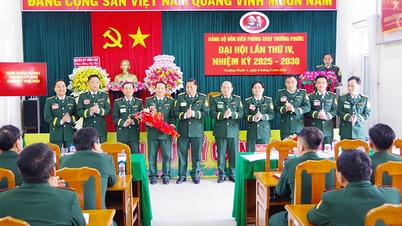


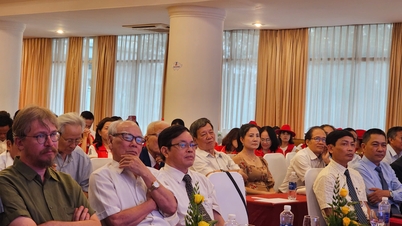
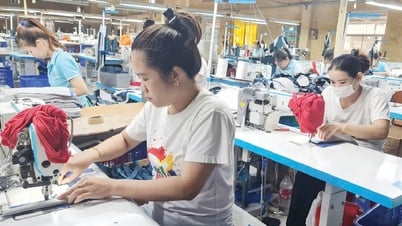












































![[Photo] Prime Minister Pham Minh Chinh talks on the phone with Singaporean Prime Minister Lawrence Wong](https://vphoto.vietnam.vn/thumb/402x226/vietnam/resource/IMAGE/2025/5/8/e2eab082d9bc4fc4a360b28fa0ab94de)


















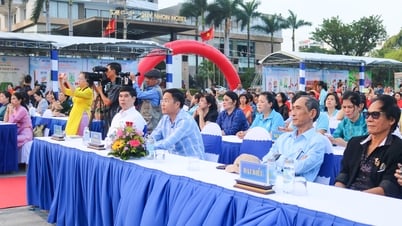

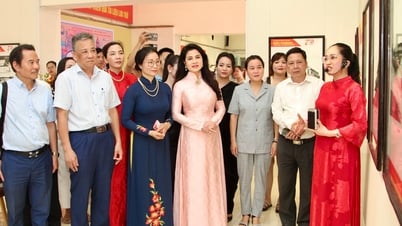

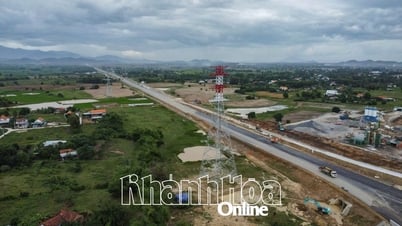












Comment (0)